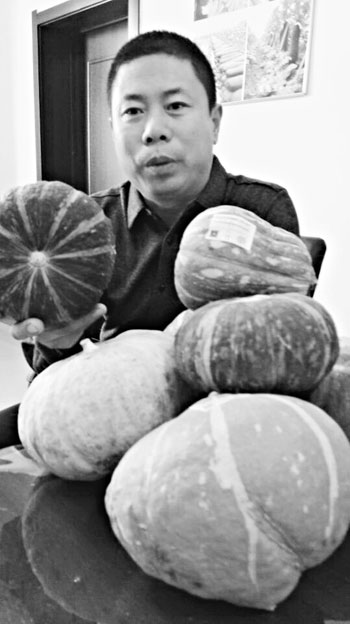Will this change China's agricultural landscape?
China now wants to lower grain prices. On the surface, it wants to dock with international prices and solve the problem of huge food price differences at home and abroad. However, it is not so simple. The country has laid out an overall situation, and grain price reduction can trigger a series of chain reactions. And this series of layout will change China's agriculture as a whole.
Let's take a look at how China's agriculture and your life will change.
Promote the construction of urbanization, a large number of farmers are forced to enter the city
If China wants to develop, it must be urbanized a lot in order to change the pattern that China is a big agricultural country, and the premise of urbanization is that a large number of farmers enter the cities. If food prices remain high, are you, as a farmer, willing to leave your land?
The answer is no.
The price of soybeans has fallen, and the price of corn has dropped sharply. You and the farmers around you have this feeling. If you don't make money from farming, you might as well make money by working. Moreover, the prices of rice and wheat in China have to be lowered. Such scattered small farmers do not make money from farming.
Once they do not make money, farmers can only transfer the land out and enter the city to seek a way to survive, which indirectly promotes the process of urbanization. In the process of entering the city, it seems that the farmers are voluntary. In fact, it is because the reduction in grain prices leads to a reduction in income and is forced to enter the city.
Moderate scale operation of agriculture will be realized.
If agriculture wants to develop, it must realize moderate scale operation in order to improve competitiveness, reduce cost and realize scale effect.
China first mentioned moderate scale operation in 1987, but not in recent years, but from the effect, it is not very good.
Because of what?
It is because the grain price is too high, the farmers' income is still good, and no one is willing to give up the land, so the land is difficult to form a scale.
Now that grain prices have fallen, scattered farmers can no longer make money from farming, and farmers are forced to give up their land as if they were forced to go to cities, and these lands are slowly transferred to the hands of farmers who can make money through high and new technology. and once the land is formed on a scale, it will reduce costs, increase planting efficiency, and slowly form a moderate scale operation.
Capital will enter agriculture and promote agricultural development.
Without the promotion of capital, it is difficult for an industry to develop rapidly. Capital is profit-seeking and knows how to use the least money to create the maximum benefit.
However, it is very difficult for China's agricultural capital to enter, because it is too scattered, and the cost of capital entry is too high and too troublesome.
After the formation of the scale of land, the cost of capital entry is much lower. Originally, capital had to face 100 farmers, but now only 10 farmers are enough, and it is easy to negotiate. After the capital is easy to enter, it will promote the development of agriculture and create greater profits.
Promote real estate destocking
The pressure of real estate destocking is not much less than that of grain destocking. There are only so few people in the city, and the purchasing power is so small, and now the state's intention is to let farmers take the plate.
After farmers enter the city, although they will not all buy houses, some of them will definitely buy, so as to speed up the sales of real estate in third-and fourth-tier cities.
Provide a large number of stable and cheap labor for the city
In the past, rural labor force would also go to work in cities in their spare time, but it is not stable, but once farmers give up their land to enter the city, they will become full-time cheap labor, thus reducing the labor costs of production enterprises and generating greater profits.
But this link is a double-edged sword, the key lies in the comprehensive placement of employment, if this problem can be solved will produce a "population dividend", but if the effect of employment placement is not good, it will bring a great social burden.
Related
- A course of planting techniques and methods on how to grow carrots
- How to plant the latest tulips?
- Is it better to pick tea in the morning or in the afternoon? When is the best time for tea to be picked? what is the third or fifth tea?
- Launch Yuanxiao Happy combination Haocha + Tea Yuan healthy Taste
- Penghu Tourism "Fireworks 20 Parade with You"
- 2022 West Lake Happiness holds "Digital Revitalization Voucher" and draws iphone13 and laptop.
- Banqiao Fuzhou social houses are designed to change start-up combined with police elimination to create a safe and livable environment
- The convenient measure of "mechanical weeding" in Xinbei has been abused and the Agriculture Bureau has imposed heavy penalties on the illegal land consolidation.
- Changgeng University Joins Hands with Four Memory Factories to Rescue Memory Talent Shortage
- The list of Taiwan's top 100 MVP managers is listed by the Director-General of the Farmers' Association of Sanxia District.



